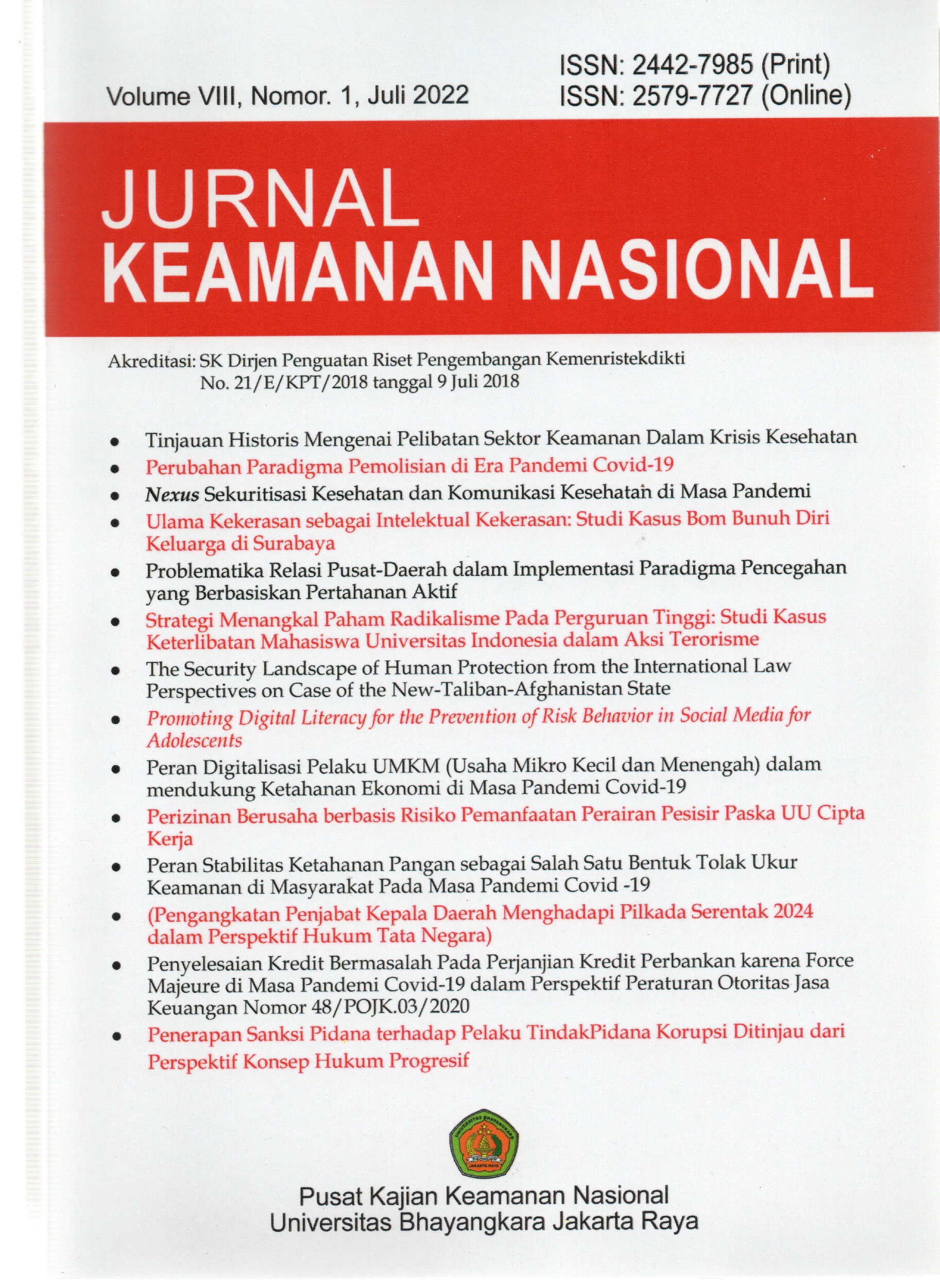Strategi Menangkal Paham Radikalisme pada Perguruan Tinggi: Studi Kasus Keterlibatan Mahasiswa Universitas Indonesia dalam Aksi Terorisme
DOI:
https://doi.org/10.31599/6asaxz08Keywords:
Strategy, Understanding Radicalism, CollegeAbstract
Radical activists are now increasingly targeting various universities, targeting students who generally do not have a strong religious background, so they can easily provide monolithic, rigid, and far from contextualized religious doctrines. One example of a case of the entry of radicalism into the campus environment is the arrest of Krisna Dwi Wardhana (KDW), an alumni student of the Faculty of Mathematics and Natural Sciences, University of Indonesia by the Special Detachment (Densus) 88 Anti-terror Police Team, in June 2021 ago, in the Bogor area, West Java. From the results of the examination, it is suspected that KDW was affiliated with the Jamaah Ansharut Daulah (JAD) network group, and had a role as a provider of raw materials for making bombs. This was reinforced by the discovery of a number of evidences including chemicals, such as dextran, sodium borate, magnesium sulfate, HCL, sulfur, and other chemicals. With the increasing number of students exposed to radicals, it is feared that this condition could threaten the existence of the ideology of Pancasila and the 1945 Constitution. Based on this, both the campus or university and elements of society must work together to overcome the notion of radicalization.
Downloads

Downloads
Published
Issue
Section
License
Please read and understand the copyright terms for submissions to this journal.
Copyright Notice
The Jurnal Keamanan Nasional is under the Creative Commons Attribution 4.0 International (CC-BY 4.0) License, according to which:
1) Authors retain copyright and grant the journal the right to first publication, with the work simultaneously licensed under the Creative Commons Attribution (CC-BY 4.0) that allows the sharing of articles published with the acknowledgement of authorship and the initial publication in this journal.
2) The authors are authorized to make additional contracts separately for distribution of the version of the work published in this journal (for example, publication in an institutional repository or as a chapter of the book), as long as there is recognition of authorship and initial publication in this journal.
3) Authors are authorized and encouraged to publish and distribute their work online (for example, in institutional repositories or on their personal pages) at any time before or during the editorial process, as it increases the impact and reference of the published work.












